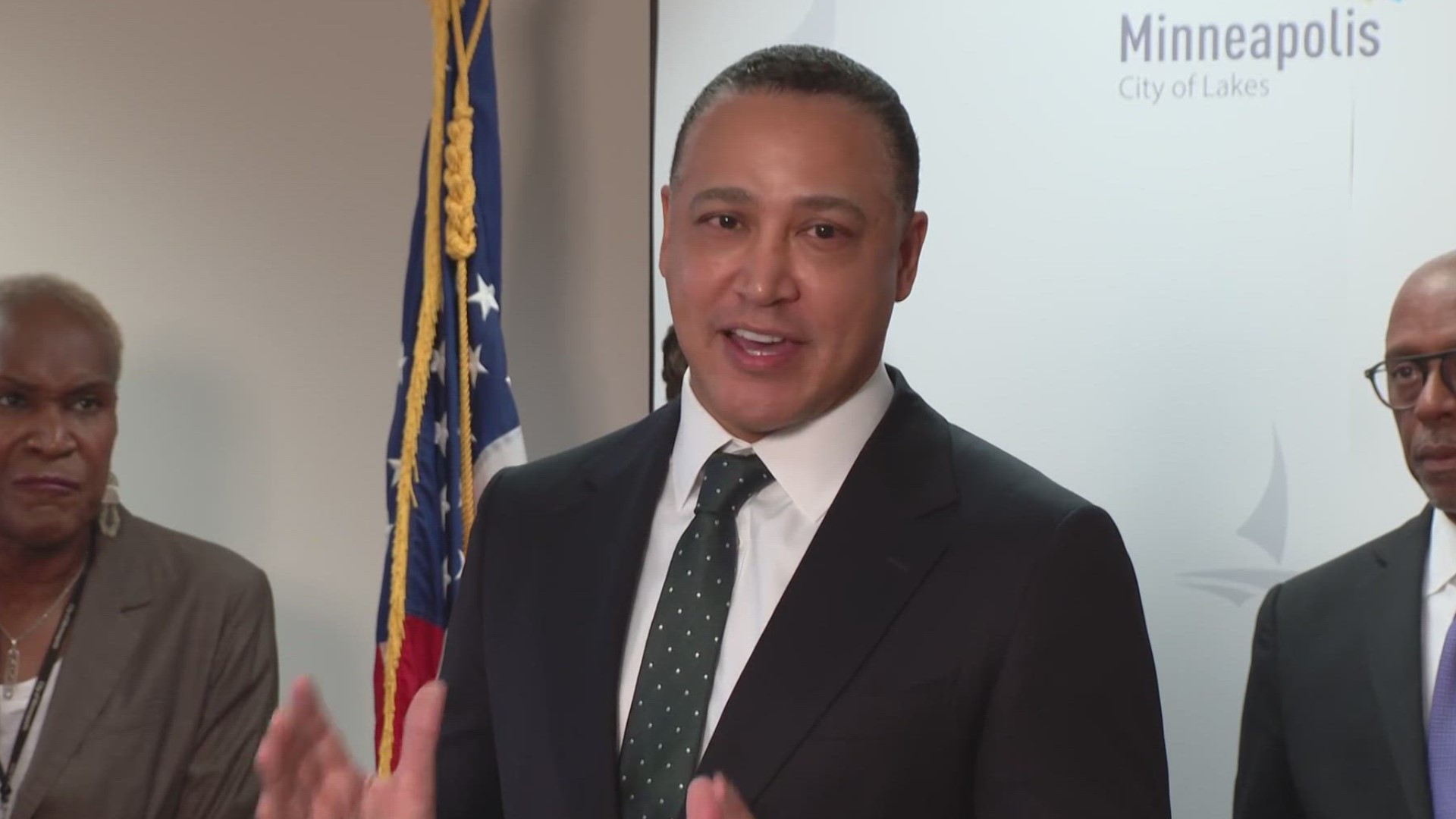MINNEAPOLIS — Harvard University researchers released a report Tuesday recommending ways Minneapolis should handle public safety.
The $400,000 study, funded mostly by philanthropists including McKnight Foundation, Minneapolis Foundation, Pohlad Family Foundation and the Joyce Foundation, was done in response to calls for change following George Floyd's murder.
Before making public the 143-page document, city leaders held a press conference with Dr. Antonio Oftelie, who grew up in south Minneapolis and now leads Harvard University's Leadership for a Networked World initiative.
He says after initial discussions, research and writing took about 18 months. He and a team of five to 10 researchers conducted around 150 community interviews during that time.
"It was gut-wrenching and it really hit me hard," said Oftelie of Floyd's murder. "And so we knew we had to do something different."
Oftelie says the thorough Safe and Thriving Communities Report put Minneapolis on track to become a national public safety leader.
The plan outlines how responses to community calls for service should be an ecosystem of not just policing but also public health and human services.
Oftelie broke it down to three bullet points.
"We talk first about preventive services, so those are all forms of services," he said. "Some city-based, some county-based."
He says the second is responsive services in terms of having both police and alternative options available for response. Lastly, Oftelie says restorative services would help the community cope with trauma and build resilience.
City leaders say the findings build onto systems they've already been developing since 2020, such as establishing the Office of Community Safety (OCS).
"A great example is our behavioral crisis response teams," community safety commissioner Dr. Cedric Alexander said. "We understand the importance of having trained and unarmed mental health professionals respond."
Heather Johnston, the interim city operations officer overseeing the Office of Public Service, also points to success in the 311 line handling non-emergency reports so that police are freed up to focus on violent crime.
Mayor Jacob Frey says to implement the Harvard recommendations will require additional money, personnel and community support.
"This comes at a perfect time because we are on the verge of this budget process for 2024," Frey said. "In the immediacy, we can look to how some of these recommendations will fit into this next year's budget."
The report also outlined action items to take within the first 12 months, including establishing a leadership team and community advisory board, developing financial plans and operational plans, holding workshops and creating a communications dashboard.
"We didn't put in the plan 'In memory of George Floyd' but I think, you know, in spirit we did," Oftelie said.
READ BELOW: Minneapolis Safety and Thriving Communities Report and Plan
Watch more local news:
Watch the latest local news from the Twin Cities and across Minnesota in our YouTube playlist:

